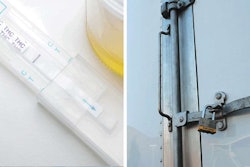The Department of Transportation Office of Inspector General has recently announced court activity in several trucking-related crime investigations. Here’s a summary of what happened with each:
Former owner-operator sentenced to life in prison in murder case sprung from FMCSA shutdown order
One Georgia man, a former owner-operator, has been sentenced to life in prison without parole and another sentenced to 24 months probation in cases stemming from charges of conspiracy to criminally violate an Imminent Hazard Out-of-Service Order issued by the Federal Motor Carrier Safety Administration.
Devasko Lewis was sentenced April 17 to life without the possibility of parole for the murder of a relative of a federal witness in Houston County, Ga., Superior Court. On May 15, the U.S. District Court in Albany, Ga., granted a motion filed by the U.S. Attorney’s Office to dismiss the indictment charging Lewis with conspiracy to criminally violate an Imminent Hazard Out-of-Service Order issued by the Federal Motor Carrier Safety Administration, so the state could pursue the murder charges instead.
In January 2014, Lewis was charged with murder, attempted murder and aggravated battery. It was alleged Lewis conspired to murder Corey Daniels, a co-defendant in a federal investigation of conspiracy to violate the FMCSA Imminent Hazard order.

Daniels agreed to cooperate in the federal case against Lewis, and shortly after an attempt was made to kill him.
Although Daniels was the actual target, his nephew was killed at Daniels’ residence in what prosecutors say was a case of mistaken identity. Lewis had expressed his unhappiness with Daniels’ cooperation against him in the federal case prior to the murder, prosecutors allege.
In October 2008, Lewis, doing business as Lewis Trucking Company, was placed under an order to cease all operations. The order was issued due to serious violations discovered during an FMCSA compliance review conducted after a fatal crash in Alabama that killed seven.
However, Devasko Lewis, assisted by his half-brother Lacey Lewis, attempted to circumvent this order by continuing to operate two other companies, Eagle Transport and Eagle Trans.
Lacey Lewis was sentenced May 13 to 24 months probation for conspiracy to violate an Imminent Hazard Out-of-Service Order issued by the Federal Motor Carrier Safety Administration.
New York couple ordered to forfeit cash, assets for CDL exam fraud
On May 13, Ying Wai Phillip Ng and his wife, Pui Kuen Ng, were sentenced in a Brooklyn, N.Y., District Court for their role in a fraud scheme related to CDL testing.
The court ordered the Ngs to forfeit cash and assets totaling more than $175,000 and sentenced Phillip Ng to 100 hours of community service. In January, Phillip and Pui Kuen each pleaded guilty to conspiracy to unlawfully produce identification documents.
The investigation determined that between 2001 and 2012, the Ngs helped approximately 500 customers cheat through the written New York Department of Motor Vehicles CDL exam by nefariously providing the answers to their clients.
Phillip Ng used a covert camera and pager system to feed answers to his clients while they took the exam. NYDMV issues CDLs in accordance with USDOT regulations. The investigation also revealed that many of the driving school’s customers did not speak or write in English.
Montana driver pleads guilty to transporting hazmat without placards
Also on May 13, Kelly Steen of Baker, Mont., pleaded guilty to the illegal transportation of hazardous materials without placards. Steen was indicted in October 2014.
On Dec. 29, 2012, Steen, a driver for Woody’s trucking, loaded natural gas condensate, or “drip gas,” from a pipeline station that transports products from the Bakken oil fields in Montana and North Dakota. The drip gas was hauled from Watford City, N.D., to Custom Carbon Processing, Inc. (CCP). CCP is a slop-oil processing/recycling company based near Wibaux, Mont.
The bill of lading that accompanied the shipment identified the product as “slop oil and water,” which is a non-hazardous substance. However, while Steen was pumping from the truck’s front tank into the CCP facility, a fire ignited, injuring three employees.
The tanks on the truck burned for eight days until the local fire department could determine that they held drip gas and not slop oil and water, as indicated on the bill of lading. Drip gas is a hazardous material and the truck was not placarded to indicate it held flammable liquid.










